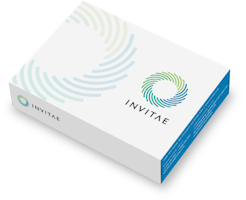
Invitae Gaucher Common Variants Test
Test code: 06000 •
Test description
The Invitae Gaucher Common Variants Test offers detection of the 19 most common GBA variants associated with Gaucher disease (please see below for additional information).
Gaucher disease is a clinically heterogeneous, multi-systemic, autosomal recessive lysosomal storage disorder caused by beta-glucocerebrosidase enzyme deficiency. Three types can be distinguished, according to the presence or absence of central nervous system abnormalities (seizures, cognitive impairment, oculomotor apraxia, bulbar and pyramidal signs), age of onset, severity, and progression. This test may be appropriate for individuals in whom Gaucher disease is suspected. Genetic testing for common GBA variants may confirm a diagnosis, help guide treatment and management decisions, and provide genetic counseling. Identification of disease-causing variants provides accurate risk assessment and carrier status of at-risk relatives.
Due to technical complexities, the Invitae Gaucher Common Variants Tests is limited to 19 targeted variants: c.84dupG (p.Leu29Alafs*18), c.115+1G>A (Splice donor), c.222_224delTAC (p.Thr75del), c.475C>T (p.Arg159Trp), c.595_596delCT (p.Leu199Aspfs*62), c.680A>G (p.Asn227Ser), c.721G>A (p.Gly241Arg), c.754T>A (p.Phe252Ile), c.1226A>G (p.Asn409Ser), c.1246G>A (p.Gly416Ser), c.1263_1317del (p.Leu422Profs*4), c.1297G>T (p.Val433Leu), c.1342G>C (p.Asp448His), c.1343A>T (p.Asp448Val), c.1448T>C (p.Leu483Pro), c.1504C>T (p.Arg502Cys), c.1505G>A (p.Arg502His), c.1603C>T (p.Arg535Cys), c.1604G>A (p.Arg535His). Recombinant alleles such as gene conversions or fusions between GBA and its pseudogene can be detected although sensitivity may be reduced. Please note that when sensitivity is reduced, zygosity may be reported as “unknown”.
Ordering information
Turnaround time:
10–21 calendar days (14 days on average)New York approved:
YesPreferred specimen:
3mL whole blood in a purple-top EDTA tube (K2EDTA or K3EDTA)Alternate specimens:
Saliva, buccal swab, and gDNA are also accepted.Learn more about specimen requirementsRequest a specimen collection kitClinical description
To view the complete clinical description of this panel, click here.
Assay information
Invitae is a College of American Pathologists (CAP)-accredited and Clinical Laboratory Improvement Amendments (CLIA)-certified clinical diagnostic laboratory performing full-gene sequencing and deletion/duplication analysis using next-generation sequencing technology (NGS).
Our sequence analysis covers clinically important regions of each gene, including coding exons and 10 to 20 base pairs of adjacent intronic sequence on either side of the coding exons in the transcript listed below, depending on the specific gene or test. In addition, the analysis covers select non-coding variants. Any variants that fall outside these regions are not analyzed. Any limitations in the analysis of these genes will be listed on the report. Contact client services with any questions.
Based on validation study results, this assay achieves >99% analytical sensitivity and specificity for single nucleotide variants, insertions and deletions <15bp in length, and exon-level deletions and duplications. Invitae's methods also detect insertions and deletions larger than 15bp but smaller than a full exon but sensitivity for these may be marginally reduced. Invitae’s deletion/duplication analysis determines copy number at a single exon resolution at virtually all targeted exons. However, in rare situations, single-exon copy number events may not be analyzed due to inherent sequence properties or isolated reduction in data quality. Certain types of variants, such as structural rearrangements (e.g. inversions, gene conversion events, translocations, etc.) or variants embedded in sequence with complex architecture (e.g. short tandem repeats or segmental duplications), may not be detected. Additionally, it may not be possible to fully resolve certain details about variants, such as mosaicism, phasing, or mapping ambiguity. Unless explicitly guaranteed, sequence changes in the promoter, non-coding exons, and other non-coding regions are not covered by this assay. Please consult the test definition on our website for details regarding regions or types of variants that are covered or excluded for this test. This report reflects the analysis of an extracted genomic DNA sample. In very rare cases, (circulating hematolymphoid neoplasm, bone marrow transplant, recent blood transfusion) the analyzed DNA may not represent the patient's constitutional genome.
You can customize this test by clicking genes to remove them.
Primary panel
Question about billing?
Find answers